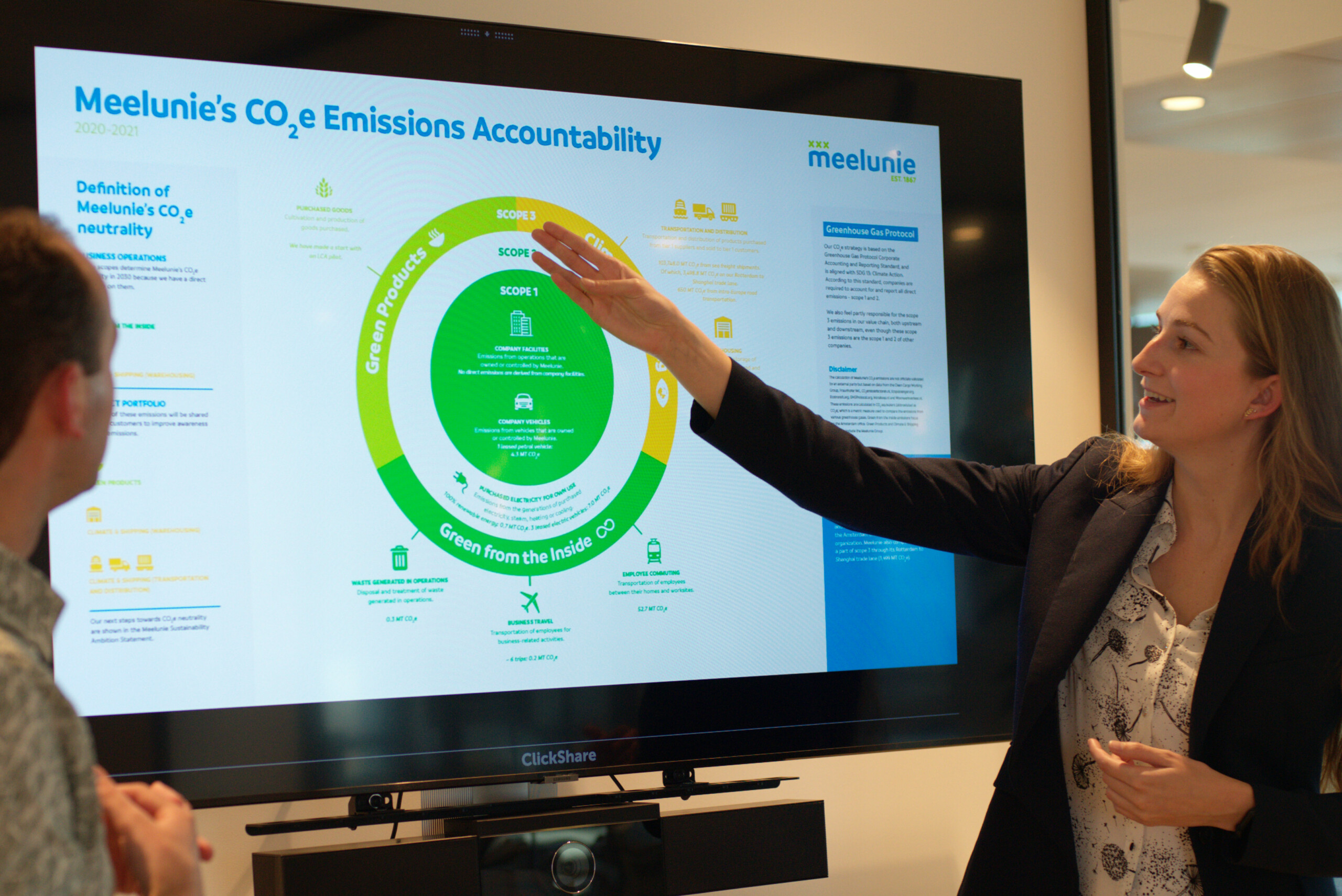On the way towards Net Zero
Meelunie's Carbon Emissions Accountability
BY Meelunie 12/10/2022The business operations of Meelunie are now carbon neutral by compensation! A major milestone that we’ve been working towards with our international offices and Meelunie Positive Impact team. This achievement is a key part of our ‘Plant Based Positive Impact’ mission and commitment to SDG13: Climate Action. It entrenches Meelunie’s position as a sustainable frontrunner in the plant-based business-to-business sector.

Why is carbon neutrality important?
Climate change is having an increasingly disastrous effect on our planet and the lives of millions around the world. To help slow climate change, we believe everyone can and should play their part in reducing carbon emissions. Meelunie included. It starts with taking responsibility and acknowledging your impact as an organisation. For example, in the case of Meelunie, climate change will affect our sourcing regions. For farmers in high-risk areas it’s going to become ever more difficult to cultivate crops and make a living. So we want to ensure the farmers in our value chains have a bright future. Because it is the right thing to do. But also because ensuring their future will safeguard the sourcing and trading of Meelunie’s products. For this reason, we’ve extended our risk management to incorporate a new climate strategy that includes achieving and maintaining carbon neutrality by compensation.



Meelunie’s carbon neutrality
Our carbon neutrality covers all our own business operations. This includes our offices, warehousing operations and employee mobility. Our carbon footprint calculations are based on the Greenhouse Gas Protocol: Corporate Accounting and Reporting Standard, which identifies three so-called ‘scopes’. The emissions in scope 1 and 2 are those on which we have a direct influence, such as gas and electricity usage in our offices and fuel consumption by company cars. Scope 3 emissions are indirect emissions on which we have less influence. We’ve therefore decided to include in our calculations all our scope 1 and 2 emissions, plus those scope 3 emissions over which we have some influence, such as emissions from business travel, employee commuting and office supplies.

Climate Action
As Gandhi said, “If you want to change the world, start with yourself”. So that’s exactly what we’re doing. To structure and measure our MUPI (Meelunie Positive Impact) initiatives, we’ve developed a continuous improvement cycle with five stages: measuring, developing, reducing, compensating and communicating. We actively used the cycle on our journey to carbon neutrality, and will continue to use it to ensure we remain carbon neutral.
More on the five stages of our Improvement Cycle you can find under the below button.

Towards a Net Zero Supply Chain
The next step on our journey is to take increasing responsibility for our scope 3 emissions: our value chain. We’re doing this by mapping the carbon emissions in the various processes within our value chain, such as the cultivation, production and transportation of our products. We already make life cycle assessments (cradle-to-gate) for our fava protein isolate, produced from 2023 in our sustainable fava proteins factory in Denmark, and have started doing this for other products. We’re also fine-tuning our CO2 calculator with BigMile, so we can share even more detailed statements of the transport-related carbon emissions.
Once we have more insight into the carbon emissions from these scope 3 activities, we can take further action. Working with our CSR partners FairClimateFund, GoodShipping and CarbonLeap, and our supply chain partners, on sustainability initiatives within our value chain. Our ultimate goal is a net-zero supply chain, but because it is a long and bumpy road to reaching it, our initial goal is to operate in a carbon-neutral supply chain and then progress on to a net-zero chain.
If you have questions or suggestions, or want to join us on our sustainability journey, just mail us at positiveimpact@meelunie.com